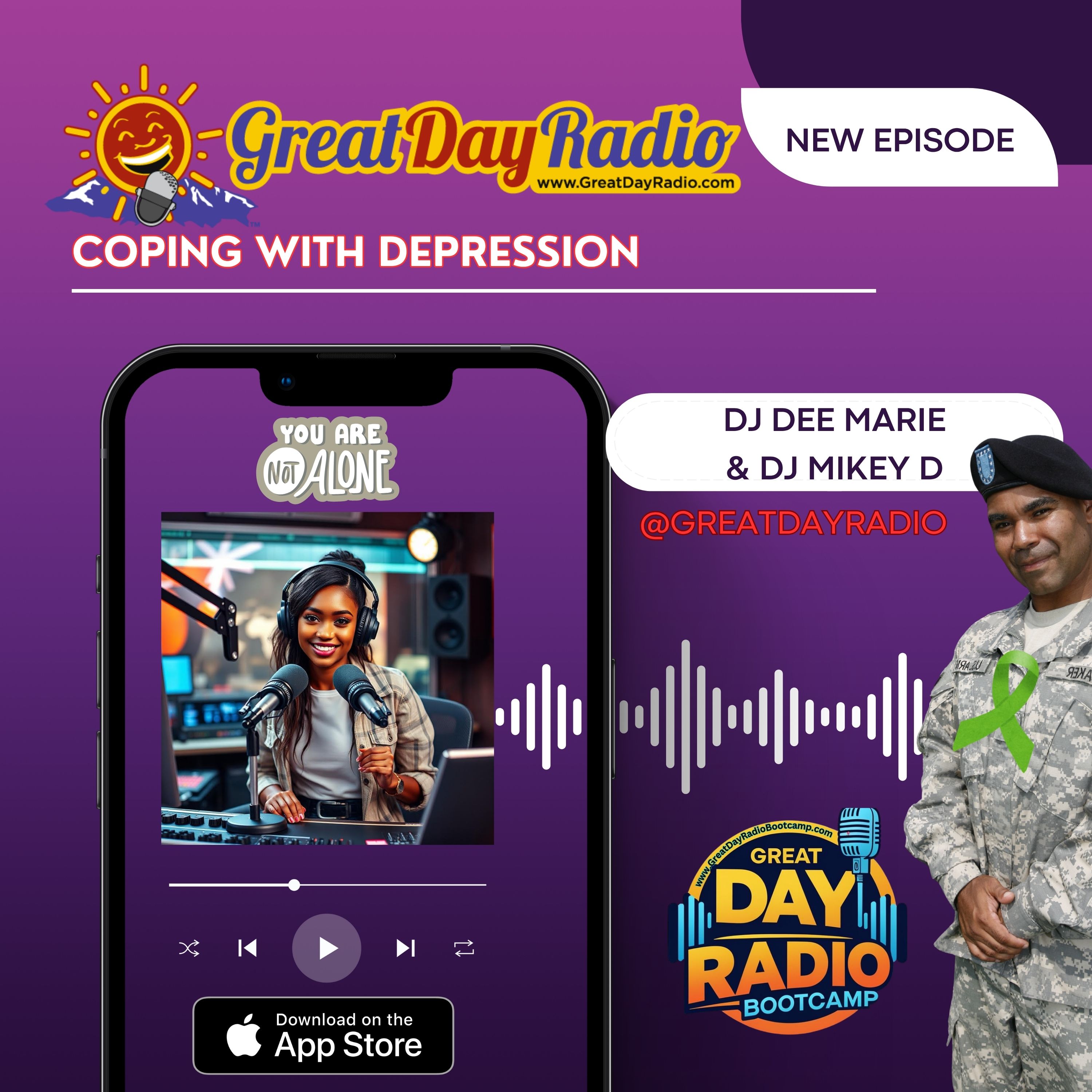Navigating Self-Sabotaging in Relationships
Posted by greatdayradio
on 10.07.2025, 08:47
2409
0
Struggling to communicate in your marriage? Discover the surprising reasons that might lead your partner to seek support elsewhere! Tune in and reflect: how do your conversations play out?
Relationship sabotage is a complex and often unconscious behavior that can undermine the foundation of even the strongest partnerships. It involves actions or thoughts that aim to disrupt or damage a relationship, leading to strain, conflict, or even separation. Understanding the roots and implications of relationship sabotage is crucial for fostering healthier dynamics between partners.
Relationship sabotage can manifest through various behaviors, such as constant criticism, jealousy, withdrawal, or infidelity. These actions often stem from deeper psychological issues, including fear of vulnerability, low self-esteem, and past trauma. It’s essential to delve into these underlying factors to comprehend why individuals might sabotage their relationships.
1. Fear of Intimacy and Vulnerability
- Individuals may sabotage relationships due to a deep-seated fear of intimacy. This fear can originate from past experiences where vulnerability led to hurt or betrayal (Baumeister & Leary, 1995). Thus, they might unconsciously push their partners away to protect themselves.
2. Low Self-Esteem
- People with low self-esteem might not believe they deserve a healthy relationship, leading to behaviors that confirm their negative self-perceptions (Murray, Holmes, & Griffin, 2000). This self-sabotage reinforces their belief that they are unworthy of love.
3. Past Trauma
- Experiences of trauma, especially during childhood, can influence adult relationships. Individuals with unresolved trauma might repeat patterns of sabotage as a means of coping or avoiding perceived threats (Davila & Levy, 2006).
4. Fear of Abandonment
- The fear of being abandoned can lead to preemptive measures to sabotage the relationship. By ending it first, the individual feels a sense of control over the inevitable loss (Johnson, 1996).
The consequences of relationship sabotage can be profound, affecting not only the partners involved but also their extended social circles. Persistent sabotage can lead to:
- Emotional Distress: Both partners may experience heightened levels of stress, anxiety, and depression due to the constant instability.
- Erosion of Trust: Repeated sabotage behaviors can erode trust, making reconciliation and repair increasingly difficult.
- Cycle of Negative Patterns: Without intervention, relationship sabotage can create a repetitive cycle of forming and destroying connections, impeding the development of healthy, stable relationships in the future.
Overcoming relationship sabotage involves both self-awareness and concerted effort from both partners. Key steps include:
1. Therapy and Counseling
- Engaging in therapy can help individuals address the root causes of their sabotaging behavior. Cognitive-behavioral therapy, for example, has been shown to be effective in altering negative patterns (Beck, 2011).
2. Open Communication
- Establishing open and honest communication with a partner can facilitate understanding and resolve hidden issues before they escalate.
3. Building Self-Esteem
- Working on personal confidence and self-worth can diminish the inclination to sabotage relationships out of self-doubt.
4. Developing Emotional Intelligence
- Enhancing emotional intelligence helps individuals manage their emotions better and respond to relationship challenges with empathy and understanding (Goleman, 1995).
Relationship sabotage is a multifaceted issue with roots deep in psychological processes and past experiences. Acknowledging and addressing these behaviors is the first step toward building healthier, more fulfilling relationships. Through therapy, honest communication, and personal growth, individuals can break the cycle of sabotage and nurture connections that are both resilient and rewarding.
Relationship sabotage can manifest through various behaviors, such as constant criticism, jealousy, withdrawal, or infidelity. These actions often stem from deeper psychological issues, including fear of vulnerability, low self-esteem, and past trauma. It’s essential to delve into these underlying factors to comprehend why individuals might sabotage their relationships.
Causes of Relationship Sabotage
1. Fear of Intimacy and Vulnerability
- Individuals may sabotage relationships due to a deep-seated fear of intimacy. This fear can originate from past experiences where vulnerability led to hurt or betrayal (Baumeister & Leary, 1995). Thus, they might unconsciously push their partners away to protect themselves.
2. Low Self-Esteem
- People with low self-esteem might not believe they deserve a healthy relationship, leading to behaviors that confirm their negative self-perceptions (Murray, Holmes, & Griffin, 2000). This self-sabotage reinforces their belief that they are unworthy of love.
3. Past Trauma
- Experiences of trauma, especially during childhood, can influence adult relationships. Individuals with unresolved trauma might repeat patterns of sabotage as a means of coping or avoiding perceived threats (Davila & Levy, 2006).
4. Fear of Abandonment
- The fear of being abandoned can lead to preemptive measures to sabotage the relationship. By ending it first, the individual feels a sense of control over the inevitable loss (Johnson, 1996).
Implications of Relationship Sabotage
The consequences of relationship sabotage can be profound, affecting not only the partners involved but also their extended social circles. Persistent sabotage can lead to:
- Emotional Distress: Both partners may experience heightened levels of stress, anxiety, and depression due to the constant instability.
- Erosion of Trust: Repeated sabotage behaviors can erode trust, making reconciliation and repair increasingly difficult.
- Cycle of Negative Patterns: Without intervention, relationship sabotage can create a repetitive cycle of forming and destroying connections, impeding the development of healthy, stable relationships in the future.
Overcoming and Preventing Relationship Sabotage
Overcoming relationship sabotage involves both self-awareness and concerted effort from both partners. Key steps include:
1. Therapy and Counseling
- Engaging in therapy can help individuals address the root causes of their sabotaging behavior. Cognitive-behavioral therapy, for example, has been shown to be effective in altering negative patterns (Beck, 2011).
2. Open Communication
- Establishing open and honest communication with a partner can facilitate understanding and resolve hidden issues before they escalate.
3. Building Self-Esteem
- Working on personal confidence and self-worth can diminish the inclination to sabotage relationships out of self-doubt.
4. Developing Emotional Intelligence
- Enhancing emotional intelligence helps individuals manage their emotions better and respond to relationship challenges with empathy and understanding (Goleman, 1995).
Relationship sabotage is a multifaceted issue with roots deep in psychological processes and past experiences. Acknowledging and addressing these behaviors is the first step toward building healthier, more fulfilling relationships. Through therapy, honest communication, and personal growth, individuals can break the cycle of sabotage and nurture connections that are both resilient and rewarding.
In reflecting on self-sabotage within relationships, we also discussed how personal insecurities might manifest into destructive behaviors. Listeners were encouraged to recognize the patterns that may have led them to undermine their own relationships. Mindful exercises and open dialogues with partners can lead to healthier dynamics. Remember, no matter how challenging it may feel, every relationship presents opportunities for growth. Exploring these fundamental topics unlocks a wealth of insights that aim to foster stronger connections. As this podcast episode demonstrates, understanding communication styles, recognizing alienation, and addressing self-sabotaging patterns can ultimately lead to healthier and more fulfilling relationships for everyone involved.
Great Day Radio Sources:
Share
Comments (0)
There are no comments yet.
Leave A Comment
Please Sign In to be able to post a comment.





